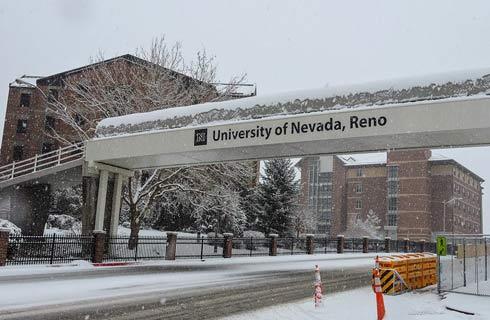Doctor of Philosophy in Animal and Rangeland Science

学历文凭
Ph.D.

专业院系
动物科学

开学时间

课程时长

课程学费

国际学生入学条件
Applicants must have
- A bachelor's or master's degree from an accredited institution of higher education in an appropriate area of science,
- An undergraduate/graduate grade point of 3.0 or higher, and
- A combined verbal and quantitative GRE score in the upper 50 percent, a TOEFL score of 550 (paper version) or 79 (internet version) for international students.
However, to receive full consideration for fall admission, all application materials should reach the department by Feb.1. For spring admission, all application materials should reach the department by Nov. 1.
IDP—雅思考试联合主办方

雅思考试总分
6.0
了解更多
- 雅思总分:6
- 托福网考总分:100
- 托福笔试总分:600
- 其他语言考试:NA
CRICOS代码:
申请截止日期:请 与IDP联系 以获取详细信息。
课程简介
The Animal and Rangeland Sciences PhD Program will prepare students for successful research, academic, and other demanding careers in fundamental and applied sciences, agriculture, rangeland management. Graduates will be prepared to address critical regional and worldwide needs to sustainably feed people, care for animals and agricultural enterprises, and manage 40% of both the U.S. and Earth’s terrestrial surface for multiple uses and values. Students may focus on various sub-disciplines related to animal science including: animal nutrition, physiology, genetics, health, reproduction, welfare, livestock production, meat industry and food safety. Specific areas of study within the rangeland ecology and management specialty include: riparian ecosystems, ecology, hydrology, restoration, landscape ecology, soil-plant relations, rangeland animal and wildlife interactions, grazing and habitat management, planning, management, monitoring, invasive species, and remote sensing. Graduates are needed to meet the needs of the agriculture profession including industry and agency research, administration, consulting, and land-grant and other colleges and universities.
相关申请

预科

奖学金

实习机会

在校学习

跨境学习

校园授课-线上开始

在线/远程学习
本校相关课程
Master of Music in Music Education

学历文凭
Masters Degree
下一个开始日期
课程费用总额
Master of Arts in Music

学历文凭
Masters Degree
下一个开始日期
课程费用总额
Bachelor of Arts in Women's Studies

学历文凭
Bachelor Degree
下一个开始日期
课程费用总额
Bachelor of Science in Wildlife Ecology and Conservation

学历文凭
Bachelor Degree
下一个开始日期
课程费用总额
Bachelor of Science in Veterinary Science

学历文凭
Bachelor Degree
下一个开始日期
课程费用总额
Doctor of Philosophy in Speech Pathology

学历文凭
Ph.D.
下一个开始日期
课程费用总额
其他相关课程
Master of Science in Animal Science

康奈尔大学
泰晤士高等教育世界大学排名:18

学历文凭
Masters Degree
下一个开始日期
课程费用总额
Bachelor of Science in Animal Science - Bioscience

田纳西大学
泰晤士高等教育世界大学排名:

学历文凭
Bachelor Degree
下一个开始日期
课程费用总额
动物科学理学硕士

南达科他州立大学
泰晤士高等教育世界大学排名:

学历文凭
Masters Degree
下一个开始日期
课程费用总额
Master of Science in Animal and Rangeland Science

内华达大学雷诺分校
泰晤士高等教育世界大学排名:

学历文凭
Masters Degree
下一个开始日期
课程费用总额
Doctor of Philosophy in Animal Sciences

华盛顿州立大学 - INTO USA
泰晤士高等教育世界大学排名:

学历文凭
Ph.D.
下一个开始日期
课程费用总额
动物科学理学硕士-动物营养

威斯康星大学麦迪逊分校
泰晤士高等教育世界大学排名:

学历文凭
Masters Degree
下一个开始日期
课程费用总额




